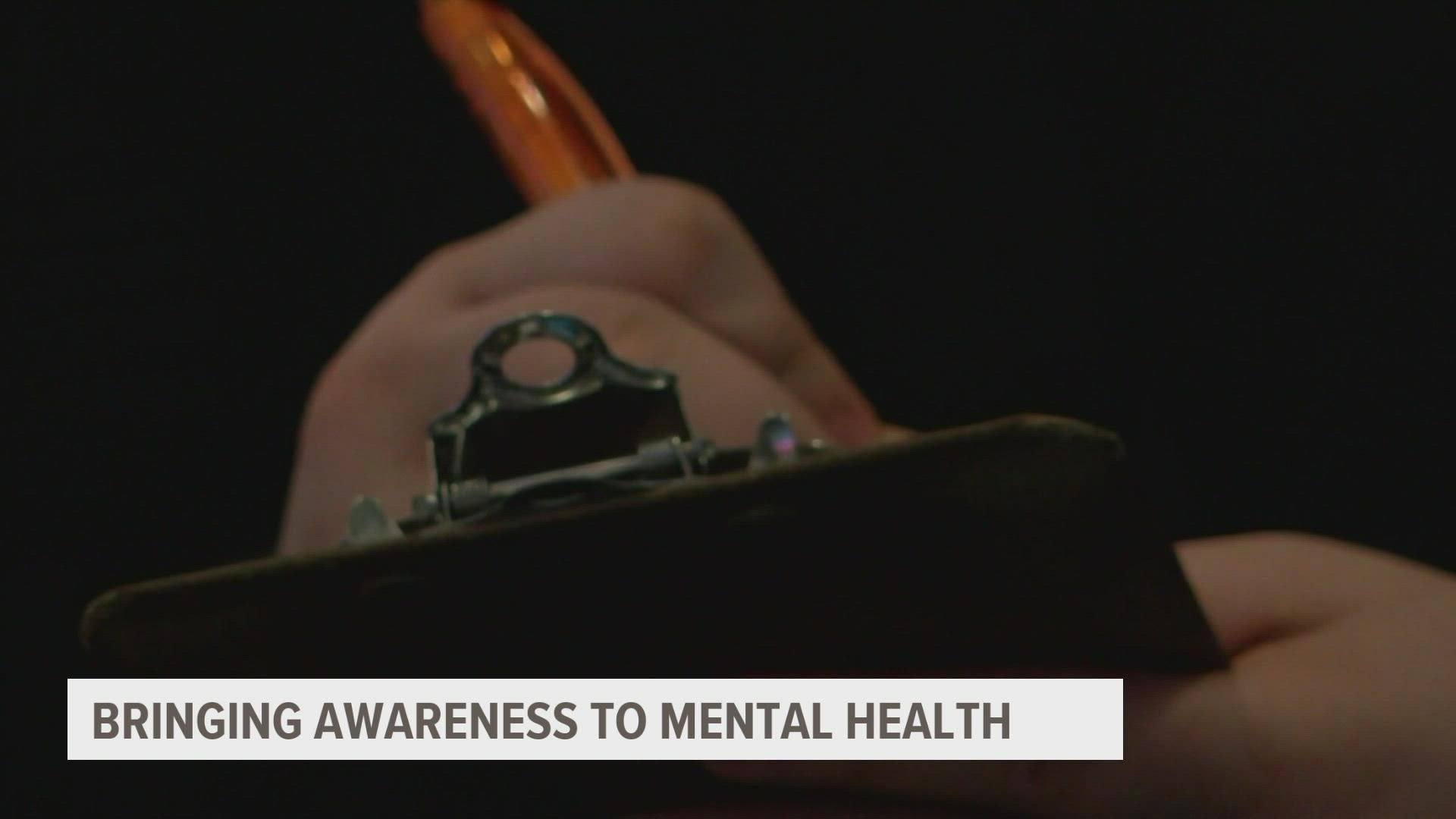ADEL, Iowa — Taking a note of your mental health this week is something Darci Alt, CEO of Heart of Iowa Community Services, wants people to do.
Alt said it's important during Mental Illness Awareness Week for people to take notice and take care of themselves.
"The earlier you get assistance, the more likely you're going to go into recovery quicker," Alt said. "We just want to open up those conversations."
One of the most important things about mental health is for people to not be afraid about speaking out and asking for help.
One person who is now more aware of what they are going through is Anthony Rothmeyer.
"I was brought up that men don't talk about their feelings," Rothmeyer said.
It's a statement Rothmeyer abided by for years.
"I never realized I had mental health issues. I thought my mind was like everybody else's," he said. "You know the anxiety, the depression, the nightmares the panic attacks things like that. I just thought that was normal."
For 38 years, Rothmeyer said instead of talking about his problems, he would self-medicate. He's use drugs, selling them and eventually going to jail.
"I tried to OD every day, I wanted to die," Rothmeyer said. "I didn't want to live anymore. I didn't want to put my family through the crap I was going through anymore …I didn't want to go to jail anymore. It was, I needed help."
During his last time in jail, something clicked and Rothmeyer wanted to change. So, he reached out to Safe Harbor, a place that provides a more effective approach to mental health crisis treatment.
Rothmeyer said being there for a few months taught him to get his mental health in order.
This meant addressing his problems with a counselor, taking medications and learning more about himself.
"Now [if] I have a bad moment or my anxiety will get high, I know how to talk to people about it," Rothmeyer said. "I know how to reach out and say hey, I'm having a bad day."
It's those tools he now uses a peer recovery specialist at Safe Harbor to help others through their problems.
One conversation people should have more, according to Alt, is asking others if they are OK and noticing if someone they care about is acting differently.
These are ways to check on another person's mental health and could show another person you care.
If you are experiencing some mental health problems and want to reach out for help, you can find help here or here.
WATCH: University of Iowa's new center focusing on kids' mental health struggles

